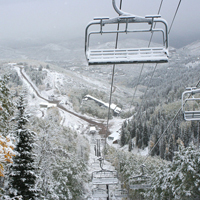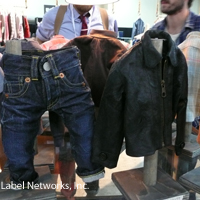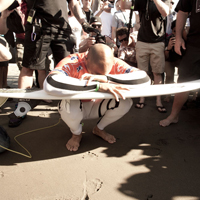
Rob Zombie performing at Rockstar Mayhem Fest. Photo by Label Networks.
Last Friday, November 5, 2010, Live Nation shares dropped heavily from 6.9% to $9.13, marking yet another turn for the troubled behemoth. With concert attendance down for many tours, do to factors such as a troubled economy, the increase in bands on the road trying to make money from touring, merch, and ticket sales, there’s an ongoing conflict of what ticket price makes sense to today’s consumers.
For Live Nation, which has laid-off many people in the last year, and just announced their global chief music executive Jason Gartner is gone, it’s been obvious that the old system has not been working. One program they tried last summer was limiting ticket fees with a no-fee Wednesdays in place during key music tour season.
Their latest solution is to simply cut ticket prices. According to their announcement while discussing 3rd quarter results last week, Live Nation said they realized that while people want to pay less for tickets, once inside the venue they still spend about the same on average at $17.80 on things like beer, merchandise, and food. Thus, once you get them in, then the venue can still make money. But does this help the bands? The balance here comes in how much the bands may make from ticket sales vs. volume of merch sold.
Live Nation CEO Michael Rapino predicted that the company can boost attendance, so long as it caps prices at $20.
“If we would have went to a $20 all-in lawn seat, we’d go from selling a few hundred tickets to 2,000 in the next day.”
At Label Networks, we’ve tracked changes in the youth market when it comes to spending patterns at shows, preferred concert and festival preferences among 13-25-year-olds and how this has changed over the last 10 years, and which tours that have created relatively successful balances between ticket prices and it’s fans. However with Live Nation/Ticketmaster controlling so many of the venues, they continue to have massive control on ticket fees and vender costs for food and drinks, and parking, among other things. Which is why watching what happens with Live Nation and tracking their decisions is of importance not only for the music industry, but brands that use sponsorship as a grassroots method to reach youth culture.
Lower concert ticket prices from Live Nation may attract more fans to shows from a general audience perspective, but for tours that already have low ticket prices for young fans, this may force them to have to drop even lower. This will also have an effect on bands who don’t usually reap the benefits of venue revenue generated from food, drinks, and parking.
In other interesting news, Live Nation announced that Barry Diller, the media giant who was one of the key people who created the Live Nation and Ticketmaster merger, has sold 2.5 million shares -almost all of his claim -to Liberty Media Corp.


